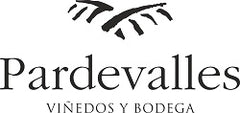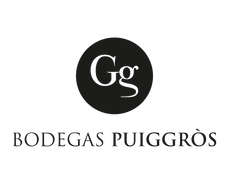86 products
- Red Wine
- Cabernet Sauvignon, Grenache, Merlot, Tempranillo
- Organic, Sustainable, Vegan-Friendly
- Dry
- Full Bodied
- 750ml
- 14% alc./vol
About the Winery
Pago Aylés

Pago Aylés was founded by Federico Ramón, who in 2003 began his dream of classifying this unique land as the first Vino de Pago in the Aragon region. In the Spanish wine quality pyramid, the Pago stands as a top tier or grand cru winery. Just before Federico died, his dream came true in 2010, as Aylés became the 10th Vino de Pago in Spain.
Today his three children continue to produce wines from this special land. The vineyard site has a long history of winemaking, dating back to the 12th century by Spanish monks. Influenced by the River Huerva and the Monte San Pablo mountain, the soil is a mixture of clay, limestone and chalk – ideal for making high-quality wine. Caves, ravines and old river beds can be found all over the estate, which is brimming with wildlife.
Press Reviews
WineAlign
90 points - John Szabo, MS
A deliciously ripe and fruity, sweet oak-inflected red from Aragón, a blend ("coupage") of merlot, garnacha, tempranillo and cabernet sauvignon. Dark plummy fruit, vanilla and dark chocolate flavours dominate with a dash of savoury herbs . I find it still a little tight and astringent, and would cellar another 2-3 years for additional softening; the sweet fruit will appeal widely no doubt. Bonus: certified organic. Tasted January 2026.
90 points - Sara d'Amato
Labelled as Vino de Pago, this wine comes from a single estate and is an organic blend of merlot, garnacha, tempranillo, and cabernet sauvignon grown on clay and calcareous soils at 500–700 m in Aragon, northeastern Spain. It shows some oak influence and a warming 14.5% alcohol, yet the palate is surprisingly balanced, filled with zesty, jammy red and black fruit. Licorice, white pepper, cedar spice, concentrated violet, and a hint of black tapenade add complexity. Very good length completes a wine that’s generous in flavour but lighter than expected on the finish. Tasted January 2026.
- White Wine
- Albarín
- Sustainable, Vegan-Friendly
- Dry
- Medium Bodied
- 750ml
- 13% alc./vol
About the Winery
Bodegas y Viñedos Pardevalles
 Pardevalles is recognized for being one of the driving forces behind the D.O Tierra de León, betting on the development of the indigenous grape varieties Prieto Picudo and Albarín Blanco. In 1949 Rafael Alonso founded Pardevalles continuing with the family tradition of growing grapes and making wine. The winemaking tradition in León goes back more than 400 years, famous for its centuries-old caves where wine was originally made.
Pardevalles is recognized for being one of the driving forces behind the D.O Tierra de León, betting on the development of the indigenous grape varieties Prieto Picudo and Albarín Blanco. In 1949 Rafael Alonso founded Pardevalles continuing with the family tradition of growing grapes and making wine. The winemaking tradition in León goes back more than 400 years, famous for its centuries-old caves where wine was originally made.The vineyards of Pardevalles are located between 750 and 820 metres above sea level, in an area with a Continental climate. They grow in poor, rocky alluvial soils which helps maintain the freshness in the wines. The philosophy of the Estate is grounded in making wines which express the character and identity of their origin, with a deep respect for the earth and the indigenous varieties of grape, combining tradition, innovation, and hard work.
Press Reviews
Decanter
92 points - World Wine Awards
WineAlign
90 points (2022) - Sara d'Amato
The early 2000s saw a revival in the albarín grape variety planted largely in the higher elevations of Castilla y León in southwestern Spain and a majority of that is being produced by Pardevalles. This refreshing and zesty expression offers an abundance of flavour from starfruit, lime, and yellow apple, to elderflower and toasty lees. Sure to be a hit with fans of sauvignon blanc and vermentino. An effortlessly elegant sipper with notable length. Tasted February 2024.
- Red Wine
- Grenache
- Organic, Sustainable, Vegan-Friendly
- Dry
- Full Bodied
- 750ml
- 14.5% alc./vol
About the Winery
Pago Aylés

Pago Aylés was founded by Federico Ramón, who in 2003 began his dream of classifying this unique land as the first Vino de Pago in the Aragon region. In the Spanish wine quality pyramid, the Pago stands as a top tier or grand cru winery. Just before Federico died, his dream came true in 2010, as Aylés became the 10th Vino de Pago in Spain.
Today his three children continue to produce wines from this special land. The vineyard site has a long history of winemaking, dating back to the 12th century by Spanish monks. Influenced by the River Huerva and the Monte San Pablo mountain, the soil is a mixture of clay, limestone and chalk – ideal for making high-quality wine. Caves, ravines and old river beds can be found all over the estate, which is brimming with wildlife.
Press Reviews
Wine Align
90 points - Michael Godel
Unexpected would indicate that strange things are forecast to occur but this garnacha from the large and historical Finca Aylés estate in Cariñena pretty much does the expected. Delivers dark varietal fruit with a mineral streak as salty as it is firm. Crunchy garnacha, full bodied and flavoured for the foreseen and well, expected. Garnacha of empowerment, helping consumers trust themselves and their palates and opinions, ultimately enabling them to confidently make wine purchasing decisions. Drink 2025-2027. Tasted March 2025.
90 points - David Lawrason
From a large and distinguished vineyard, this is a very smart and delicious garnacha. The ripe sweet almost candied nose black cherry, pomegranate juice is also quite floral. Oak is nicely in the background with a hint of mocha and spice. It is quite full bodied and rounded, but also has enough warmth and acidity to give it a sense of freshness and stability. The length is excellent. Might be a bit confected for some. Chill a bit. Last tasted Jan 2026
90 points - Megha Jandhyala, S.J.D., DipWSET.
This vegan garnacha from Aragón is almost lavishly fruity, with an engaging array of red fruit, some lightly candied. Undertones of woody spices and violet petals add to its appeal. The palate is supple, with juicy acidity, subtle warmth, and a gentle viscosity that lends it a sense of fullness. I really like the woody herbal note that lingers on the long finish. Bold, easy-to-like, and full of varietal character, this garnacha should ideally be enjoyed over the next year or so. Tasted January 2026.
90 points - Sara d'Amato
A full-throttle yet effortlessly pleasing and typical garnacha. White pepper, violets, strawberry, and black currant lead the charge. Clean, stylish, and modern, with a mouthwatering degree of juiciness. At 13.5% alcohol, it sits on the moderate end for the variety, making it notably more food-friendly than the norm. The spice profile is clearly grape-driven, with little to no influence from oak. Tasted January 2026.
- Rosé Wine
- Prieto Picudo
- Sustainable, Vegan-Friendly
- Dry
- Medium Bodied
- 750ml
- 13.5% alc./vol
About the Winery
Bodegas y Viñedos Pardevalles
 Pardevalles is recognized for being one of the driving forces behind the D.O Tierra de León, betting on the development of the indigenous grape varieties Prieto Picudo and Albarín Blanco. In 1949 Rafael Alonso founded Pardevalles continuing with the family tradition of growing grapes and making wine. The winemaking tradition in León goes back more than 400 years, famous for its centuries-old caves where wine was originally made.
Pardevalles is recognized for being one of the driving forces behind the D.O Tierra de León, betting on the development of the indigenous grape varieties Prieto Picudo and Albarín Blanco. In 1949 Rafael Alonso founded Pardevalles continuing with the family tradition of growing grapes and making wine. The winemaking tradition in León goes back more than 400 years, famous for its centuries-old caves where wine was originally made.The vineyards of Pardevalles are located between 750 and 820 metres above sea level, in an area with a Continental climate. They grow in poor, rocky alluvial soils which helps maintain the freshness in the wines. The philosophy of the Estate is grounded in making wines which express the character and identity of their origin, with a deep respect for the earth and the indigenous varieties of grape, combining tradition, innovation, and hard work.
Press Reviews
WineAlign
90 points (2022) - Sara d'Amato
Pours a luminous, deep pink, this rosada from Leon is made entirely of the indigenous prieto picudo grape, more typically a blending variety with dark skins and often resulting in wines with licorice-tinged black and red fruit. With youthful exuberance and potency, this salty and succulent expression features a wealth of lightly candied red berries, slippery tannins and a touch of welcome bitterness that contributes balance and a sensation of freshness. Best to enjoy in its youthful condition but it has the concentration for another year or two of aging. Tasted February 2024.
- White Wine
- Garnacha Blanca
- Natural, Sustainable, Vegan-Friendly
- Dry
- Medium Bodied
- 750ml
- 14.2% alc./vol
About the Winery
Bodegas Puiggròs

Since 1843, the Puiggros family has been producing wines from their own vines in the Odena region of Catalunya for the family and close friends. Over generations they had come to realize that their vineyards and techniques were something worth sharing with the world. A sincere dedication to the terroir in their zone and the indigenous varieties that grow there, allows them to constantly discover ways to unlock all of the magic that lies within their land.
Starting with conscious and clean farming in the vineyard, they hand-harvest only the best fruit for their production, and ferment each vineyard separately in varying vessels to accentuate what the vines have to show; some in stainless steel, and many in clay amphora of differing sizes. All the while seeing very little sulfur use (if any) until bottling. Puiggros is pushing the quality of northeastern Spain's wines forward, and doing so in a clean and unique way.
Press Reviews
Wine Align
91 points - Michael Godel
Of Catalonian garnatxa blanca planted upwards of 600m on limestone and clay before aging judiciously inside 800L clay amphora. A going concern of method and style for white grenache in this northerly part of Spain and 2023 comes away as clean and fleshy as any previous vintages. Sapid with an herbal-botanical element while fruit is so bloody persistent in its ability to shine. These are the right kinds of tonics and bitters to fulfill a garnacha raised in amphora dream. Drink 2025-2028. Tasted November 2025.
90 points - Sara d'Amato
High-elevation white garnacha raised in amphora, delivering a juicy and engaging profile in eye-catching packaging. Clean, bright, and subtly salty with flavours of peach, lemon zest, chamomile and dried herbs. It's nervy and deceptively complex, finishing with a gentle swell of warmth from otherwise unassuming alcohol. Excellent length. Drink now or hold 2-3 years. Tasted November 2025.
- Red Wine
- Graciano, Grenache, Tempranillo
- Sustainable
- Dry
- Medium Bodied
- 750ml
- 14.5% alc./vol
About the Winery
Bodegas Exopto
Exopto is Latin for “to long for” or “to desire greatly” and it is the dream of Frenchman Tom Puyaubert and his family to endeavor to craft and assemble wines where the whole adds up to more than the sum of their parts. Tom relocated from France to Rioja in 2000 after falling in love with the region and working for the French cooperage Saury as its Spain representative.
When Tom began Exopto, he wanted to do a project that produced wines within this historical context of Rioja - combining both worlds in a unique way. His idea is to remain true to the blending of the principle grape varieties and to do so from the best terroirs/villages for those varieties crossing sub-regions of Rioja. Each wine though, has a majority of a different principle grape – showcasing that variety specifically within the context of a blend. The viticulture and winemaking model is that of the “vigneron” days – small plots of vines in the extremes, wild yeast fermentation in concrete or old oak vats and then aging in a way to showcase the fruit, minerality and terroir not the wood or aged flavours that people often associate with Rioja.
Press Reviews
Wine Align
91 points (2021) - John Szabo
A blend of garnacha, tempranillo and graciano grown at around 500m in the Sierra de Cantabria, this is aged exclusively in concrete and thus a long way from what many would consider the 'traditional' style of Rioja. I like the freshness and vibrancy allied at the same time to ripe, plush fruit spanning both the red and black spectrum. Tannins are supple and acids balanced and creamy, leading into a long, gently saline finish. Concentration and depth, as well as complexity overall, far exceed expectations in the category. Well made wine from an evidently superior vineyard, delicious now, or hold 3-4 years. Tasted January 2024.
91 points (2021) - Megha Jandhyala
This is a charming Rioja, a blend of garnacha, tempranillo, and a small amount of graciano. I like the bright, supple red fruit here and the pretty floral and savoury herbal notes. The palate is lively and supple, with fine-grained tannins and juicy acids. Fresh, streamlined, and with a sense of lightness that is appealing, this wine is ready to drink, though it can also be cellared for a couple of years. Tasted January 2024.
- Red Wine
- Listán Negro
- Sustainable, Vegan-Friendly, Volcanic
- Dry
- Medium Bodied
- 750ml
- 13.5% alc./vol
About the Winery
Viñátigo

Juan Jesús is a proud native of Tenerife and the fourth generation of growers. During the thirty years that he's overseen Bodegas Viñátigo, he has considerably increased its holdings, planting varieties that he and his team recuperated from near extinction.
Driven by passion and love for his homeland, Juan decided to revive and work to save the native grape varieties that were brought to the Canary Islands by the conquers back in the 15th century and that had survived on the islands for centuries. He is a hero of contemporary Canarian viticulture. The wealth of knowledge that his work has created has helped underpin the significant expansion of wine styles that are now available throughout the archipelago, and his wines have achieved a calibre of class that many doubted the Canaries would ever produce again. (The Epic Wines of the Canary Islands, written by Santo Bains).
Press Reviews
Wine Align
91 points - Michael Godel
Freshest of freshest varietal listán negro which means the hyperbole of acidity distracts from detecting any serious tannin while fruit and volcanic hypotheticals create their necessary union. The unmistakable and impalpable listán negro is expressed through a house’s consistent, persistent and unwavering purity, without grift or deception. If "your sensibilities are shaken by the slightest defect" please do not worry and don't call the police because "slight" is the operative word. This is the Viñátigo way and this their accessible red wine in celebration of clarity from a place. Getting at this 2024 involves no early indication of potential danger or failure but instead the prospect of delicious drinking for these next few years. No canary in a coal mine indeed but yet a character that is expressly Santa Cruz de Tenerife. Oh joy, oh rapture for a crispy varietal red seemingly always “acertado,” readied, on call and on point. Drink 2026-2029. Tasted June 2025.
91 points - Sara d'Amato
Expressive and grippy with an expansive aromatic profile. This volcanic red from the sub-tropical Atlantic outpost of Tenerife, is made from the local listán negro is juicy and naturally spicy with the faintest hint of volatility adding character to the wine. Tannins are lightly grippy with snappy acids on the palate. Engaging and versatile with food. Ready to drink but don't serve too warm. Tasted June 2025.
90 points - Megha Jandhyala, S.J.D., DipWSET.
This is an intriguing and distinctive listán negro, with aromas of ripe red berries, cherries, and pomegranates amplified by a whiff of volatile acidity. These fruit flavours are accompanied by pleasing flavours of dried savoury herbs, including juniper and rosemary, crushed wildflowers, and a hint of spice. The palate is medium bodied, with fine, drying tannins and crisp acidity, while the finish is long and fragrant, with notes of sweet herbs peaking on the long, layered finish. I would enjoy this wine sooner rather than later, ideally over the next year. Tasted June 2025.
- White Wine
- Listán Blanco
- Sustainable, Vegan-Friendly, Volcanic
- Dry
- Light Bodied
- 750ml
- 12.5% alc./vol
About the Winery
Viñátigo

Juan Jesús is a proud native of Tenerife and the fourth generation of growers. During the thirty years that he's overseen Bodegas Viñátigo, he has considerably increased its holdings, planting varieties that he and his team recuperated from near extinction.
Driven by passion and love for his homeland, Juan decided to revive and work to save the native grape varieties that were brought to the Canary Islands by the conquers back in the 15th century and that had survived on the islands for centuries. He is a hero of contemporary Canarian viticulture. The wealth of knowledge that his work has created has helped underpin the significant expansion of wine styles that are now available throughout the archipelago, and his wines have achieved a calibre of class that many doubted the Canaries would ever produce again. (The Epic Wines of the Canary Islands, written by Santo Bains).
Press Reviews
Wine Align
92 points (2021) - David Lawrason
From high altitude volcanic-soiled vineyards in the Canary Islands this is from the local listan grape, also known as palomino fina, related to the white grape grown in Jerez to make sherry. It is light to medium bodied, fresh and lively with trace minerality. Not tart acidity but enough to keep it in ballast. The fruit is pear, guava, lemon amid the reductive mineral notes, plus a distinct sourdough yeastiness on the nose that immediately recalled fino sherry. The length is excellent. Tasted December 2022.
91 points (2021) - Michael Godel
Viñátigo Listán Blanco 2021 initially emits this unusually funky and exotic perfume of wet basalt or concrete mixed with washed manchego cheese rind but quickly comes together as one inviting scent. Preps the palate for wanting a taste to see what comes next and the clarity shines right away, of gemstones and the salty sweat of craggy wet stones. There is some orchard fruit but what matters most is the saline-mineral comport. It's like a compôte of imagination built on fruit and volcanics melted into a salad that spoons straight on down. Bloody delicious and well-made. Drink 2023-2027. Tasted December 2022.
91 points (2021) - John Szabo, MS
2021 marks another fine vintage for this reliably intriguing and interesting, complex wine from own-rooted listán blanco (aka palomino fino), quite ripe, showing pineapple and quince, baked apple and apple blossom flavours, less immediately flinty-reductive than the previous vintage and with more fruit. The palate is mid-weight and creamy, with balanced acids and very good length. Really delicious now, though should continue to gain in non-fruit complexity over the next 1-3 years, or hold into the mid-'20s. Tasted December 2022.
- Red Wine
- Grenache
- Natural, Sustainable, Vegan-Friendly
- Dry
- Full Bodied
- 750ml
- 13.8% alc./vol
About the Winery
Bodegas Puiggròs

Since 1843, the Puiggros family has been producing wines from their own vines in the Odena region of Catalunya for the family and close friends. Over generations they had come to realize that their vineyards and techniques were something worth sharing with the world. A sincere dedication to the terroir in their zone and the indigenous varieties that grow there, allows them to constantly discover ways to unlock all of the magic that lies within their land.
Starting with conscious and clean farming in the vineyard, they hand-harvest only the best fruit for their production, and ferment each vineyard separately in varying vessels to accentuate what the vines have to show; some in stainless steel, and many in clay amphora of differing sizes. All the while seeing very little sulfur use (if any) until bottling. Puiggros is pushing the quality of northeastern Spain's wines forward, and doing so in a clean and unique way.
Press Reviews
WineAlign
91 points - David Lawrason
Exedra Negre is 100% Garnatxa (Catalan for grenache) planted on limestone and clay soils at 500 meters. Part is fermented in large concrete, part in amphora. It pours fairly pale but bright ruby. The aromas are classic grenache strawberry jam with fine, subtle array of tobacco, pepper and herbs in the background. It is medium weight, fresh, balanced and almost refined - not really showing its 14.5% alcohol except for a slight kirsch flavour to the fruit on the finish. The length is excellent. Chill a bit. Tasted January 2026.
91 points - Michael Godel
Warm vintage for garnatxa aged in clay-pot (amphora) from Odena’s limestone and clay soils at 500m in the shadow of the Montserrat massif. Consistent sweet red candied fruit aroma, always alluring and quite naturally so. The amphora does not take over the character but seems to simply allow the land to do the talking. Drink 2026-2029. Tasted January 2026.
90 points - John Szabo, MS
Pure grenache vinified and aged in amphora, the wine shows oxidative aromatics, candied/dried fruit and shoe polish, more advanced than one would hope for at this relatively young age. The palate is nonetheless, silky-smooth and broadly appealing, soft and round as it is, generous without heaviness. I like the saline nature that encourages another sip and brings the fruit and wild herb flavours into sharper relief. Acids are equally helpful in framing the ensemble. In the end it works nicely; drink over the near term to capture the fading freshness. Tasted January 2026.
- Red Wine
- Tempranillo
- Sustainable
- Dry
- Residual Sugar: 1 g/l
- 750ml
- 13.55% alc./vol
About the Winery
Bideona

Bideona owns or manages over 300 parcels of extraordinary vines in villages throughout the Rioja Alavesa, the coolest, smallest and most Atlantic sub-zone of Spain’s most famous wine region.
The vineyards of the Rioja Alavesa are defined by parcels of old bush vines planted on terraces or hillside slopes with a high percentage of limestone. Located in the foothills of the Sierra Cantabria, Bideona’s vines have an average age of 50 years and many were planted in the 1920s, 30s and 40s, before high-yielding clones became available.
Bideona puts the focus firmly on terroir by making each wine in its Vino de Pueblo range as a field blend of Tempranillo and other native varieties from plots in an individual village. Each is named with an acronym – L3Z4 for Leza, L4GD4 for Laguardia, S4MG0 for Samaniego and V1BN4 for Villabuena – owing to DOCa Rioja regulations that only allow village names to be marked if both the winery and the vineyard are in the same location.
“Bideona’s reason for existence is to make wines that show the personality of the Rioja Alavesa and its historic wine villages” states company co-founder and director, Andreas Kubach MW. “We have access to a wealth of diverse plant material in our parcels of old vines, which we believe contributes to the complexity of the wines as well as the differences between villages.”
Press Reviews
WineAlign
91 points - Megha Jandhyala, S.J.D., DipWSET.
With its open, unassuming, and unguarded personality, this wine is a lovely entry-point into Biedeona's portfolio. I love the bright fruit flavours, red and dark, resinous herbs, wildflowers, and hints of pepper depicted here. The palate is medium bodied, with supple acidity and balanced, firming tannins. An herbal note lingers on the finish, closing off the delightfully expressive palate. I would enjoy this modern Rioja now or over the next couple of years in order to benefit from its youthful charm. Tasted January 2026.
90 points - Sara d'Amato
Crisp with delicate floral aromatics, this wine shows the cool, higher-elevation “Alavesa” character, but with greater weight at 14% alcohol. Notes of violet, cherry, raspberry leaf, and pink peppercorn add charm. Juicy, youthful, and effortlessly stylish, both in the glass and in its packaging. Intriguing, satisfying - a not-so-guilty pleasure. Tasted January 2026.
- Red Wine
- Cabernet Franc, Carignan, Grenache, Merlot
- Natural, Vegan-Friendly
- Dry
- Medium Bodied
- 750ml
About the Winery
Celler Escoda-Sanahuja

Joan Ramón Escoda founded Celler Escoda Sanahuja in 1999 along with his wife Mari Carmen in Conca del Barbera, Catalonia. Since then, they have been disrupting the wine industry both in their home-country and internationally.
Celler Escoda Sanahuja was one of the first wineries that, back in 2005 stopped adding sulphites to their wines. Joan Ramon has always been a radical winemaker and a grass-roots innovator. His wild enthusiasm has been fuel for the natural winemaking scene, and has also led him to, spontaneously, create the 'Brutal' movement popular in natural wine circles. These are highly individual wines reflecting their origins and their innovative winemaker.
- Orange Wine
- Albariño
- Sustainable, Vegan-Friendly
- Dry
- 750ml
About the Winery
Peninsula Vinicultores

Península Vinicultores was founded by two Masters of Wine: Andreas Kubach MW, leads production and Sam Harrop MW directs viticulture. Andreas, raised in Brazil and Spain by German parents, and Sam, a native New Zealander, bring a new-wave, international perspective to the Spanish wine landscape. Andreas believes that in the past century, and notably post-industrialization, Spanish producers have prioritized wines of style, focusing on winemaking and aging, rather than wines of place. This creates what he calls a “ceiling of interest” for terroir. Inspired to change this narrative, he is focusing on small, old-vine plots all over Spain that were either formerly abandoned or are at risk of being ripped out for to plant more lucrative cash crops. The wines also champion local, indigenous varieties traditional to their respective regions and best express site.





























